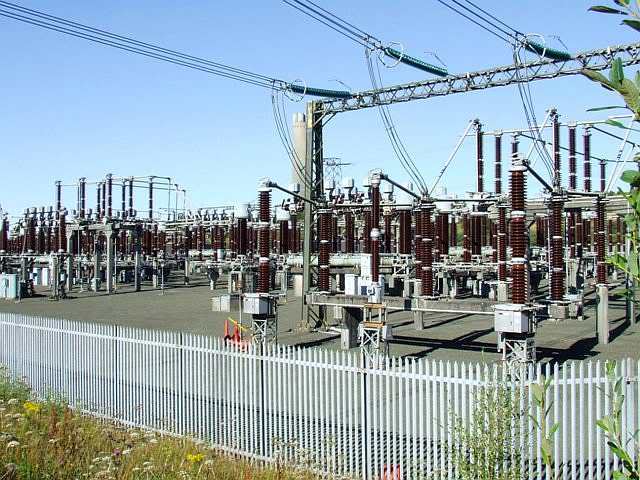
Tanko Mohammed
Nigeria’s debt to China remained $3.121 billion as the country’s figures showed it owed $85.89 billion to creditors as at end of June this year.
The Debt Management Office (DMO) released the information on the Public Debt Stock with data showing an increase by $6.59 billion since March 2020.
The increase in the Debt Stock was accounted for by the $3.36 billion budget support Loan from the International Monetary Fund (IMF), New Domestic Borrowing to finance the Revised 2020 Appropriation Act including the issuance of Sukuk, and Promissory Notes issued to settle claims of exporters.
The DMO expects the Public Debt Stock to grow as the balance of the New Domestic Borrowing is raised and expected disbursements are made by the World Bank, African Development Bank and the Islamic Development Bank which were arranged to finance the 2020 Budget.
It will be recalled that the 2020 Appropriation Act had to be revised in the face of the adverse and severe impact of COVID-19 on Government’s Revenues and increased expenditure needs on health and economic stimulus amongst others.
Additional Promissory Notes are expected to be issued in the course of the year, this, and new borrowings by State Governments are also expected to increase the Public Debt Stock.
DMO reported that as at March 31, 2020, the total borrowing from China was $3.121 billion.
This amount represents only 3.94% of Nigeria’s total public debt.
According to DMO, China is not a major source of funding for the Nigerian Government.
“They are concessional loans with interest rates of 2.50% per annum, tenor of 20 years and Grace Period (Moratorium) of Seven years.
The low interest rate reduces the Interest Cost to Government while the long tenor enables the repayment of the principal sum of the Loans over many years. These two benefits, make the provisions for Debt Service in the Annual Budget lower than they would otherwise have been if the Loans were on commercial terms.
The $3.121 billion loans are project-tied loans, financing Nigerian railway modernization projects in Lagos and Abuja; four airport terminals expansion also in Abuja, Kano, Lagos and Port Harcourt.
The projects, according to DMO have the added benefits of job creation, not only by themselves but through direct and indirect service providers, a number of which are Small and Medium Enterprises.
“It is widely accepted that investment in infrastructure is one of the most effective tools for countries to achieve economic growth and development. Using Loans from China to finance infrastructure is thus in alignment with this position,’’ DMO reported.
Since the end of June 2015, one month after President Muhammadu Buhari came into power the debt profile rose by 155.86 per cent within the five-year period.
Other major creditors aside China are the World Bank, African Development Bank and the Islamic Development Bank as well as IMF.
In proportional terms, the Federal Government holds 81.52 per cent of the nation’s total public debt while the sub-national governments hold 18.48 per cent.
The growing size of the nation’s debt profile can be seen in the growing size of the debt servicing commitment. The government had earlier indicated that a total of $4.3 billion was spent on servicing both external and domestic debts in the first six months of the year.
Meanwhile, President Muhammadu Buhari has inaugurated the National Steering Committee to oversee the development of the Nigeria Agenda 2050 and Medium-Term National Development Plan (MTNDP) meant to uplift more than 100 million people from poverty in 10 years.
At the inauguration in Abuja in September 9, 2020, Buhari said the Agenda 2050 and MTNDP were to succeed Vision 20:2020 and the Economic Recovery and Growth Plan (ERGP) 2017 – 2020.
”The main objectives of these Successor Plans are to lift 100 million Nigerians out of poverty within the next 10 years, particularly given the World Bank’s projection that Nigeria will become the world’s third most populous country by 2050 with over 400 million people.”
He said the successor plans must, therefore, be designed to sustain national development, as well as support regional and global strategic interests, as outlined in the African Union Agenda 2063, the ECOWAS Integration Agenda 2050 and the Sustainable Development Goals 2030.
While underscoring the importance of national development planning, the president said if carefully conceived and diligently implemented, it could transform the economic fortunes of a nation.
”The Chinese experience is an example. It has resulted in lifting over 700 million people out of poverty over the last four decades.
”Indeed, China’s track record of positive economic growth, since 1992, was only halted in the first quarter of 2020, due to onset of the COVID-19 Pandemic.
”COVID-19 presents the world – and Nigeria – with a crisis as well as an opportunity. The current global health and economic crises give us an opportunity to think afresh and chart an optimal path forward, ” he said.
In her remarks, the Minister of Finance, Budget and National Planning, Dr Zanaib Ahmed, noted that lately, various zones of the country have been pursuing different economic cooperation within their areas.
She, therefore, urged that the new Plans consider the comparative advantages available in these regional blocs to build a virile Nigeria.













